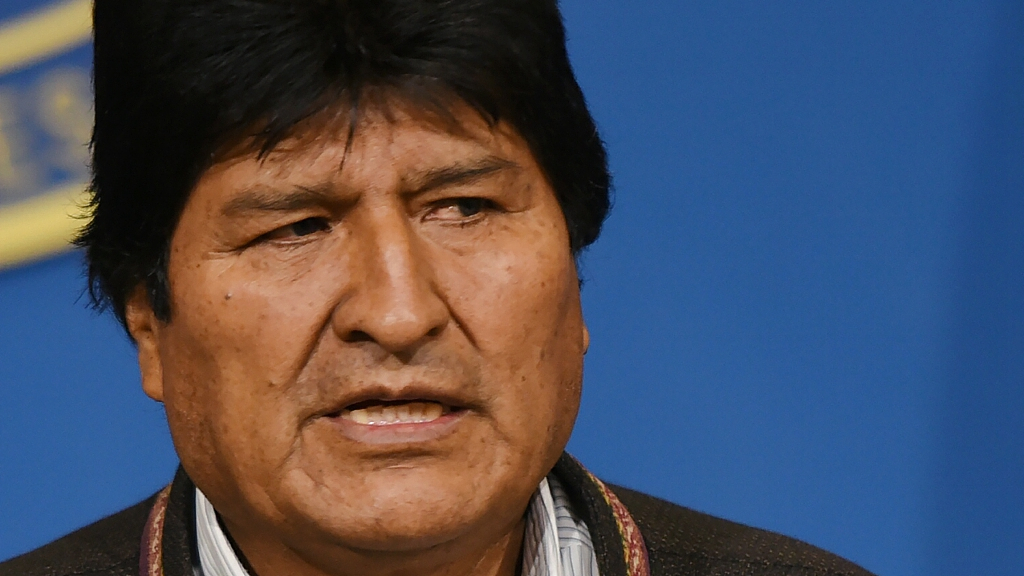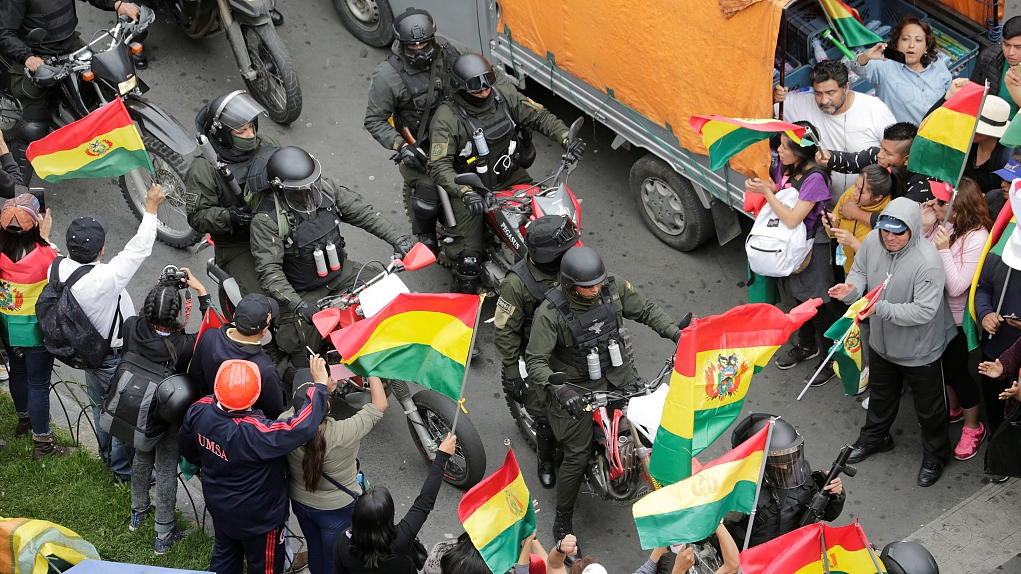Evo Morales, who has resigned as Bolivia's president, flew to Mexico on Monday evening as a senator expected to succeed him in the interim pledged to call fresh elections.
Morales' government collapsed on Sunday after ruling party allies quit and the army urged him to step down in the wake of a disputed election. Unrest on the streets of Bolivia has continued in the wake of his resignation.
Why has Mexico offered asylum?
Mexico's Foreign Minister Marcelo Ebrard said he had received a call from Morales "to verbally and formally request asylum in our country" and that the request had been granted.
Ebrard said Morales' life was in danger and the decision to grant him asylum was in Mexico's long tradition of sheltering exiles.
Morales, who was the country's first indigenous president, boarded a Mexican government plane late on Monday night from the central Bolivian town of Chimore, a stronghold of his supporters where he retreated over the weekend after weeks of protests over a disputed election win loosened his grip on power.
In a tweet, he confirmed he was departing for Mexico, but pledged to return with more "strength and energy."

Evo Morales at a press conference in El Alto, Bolivia, November 9, 2019. /VCG Photo
Evo Morales at a press conference in El Alto, Bolivia, November 9, 2019. /VCG Photo
Tweeting earlier from the central coca-growing region of Chapare, Morales called on the opposition to "pacify the country" as some of his supporters were violently set upon in La Paz, while a top opposition figure said he feared an imminent mob attack on his home.
Ebrard said his government viewed Sunday's events in Bolivia as a "coup" because the military broke with the constitutional order by pressing Morales to resign.
Will elections take place?
Jeanine Anez, a 52-year-old deputy senate speaker, is constitutionally in line to become interim president. She likely to be tasked by Congress to oversee fresh elections and a transition to a new government by January 22.
"We are going to call elections," Anez told reporters in La Paz, saying that there will be "an electoral process that reflects the will of all Bolivians," a day after the shock resignation of Morales and his ministers left the country in a power vacuum.
Read more:
Morales resigns, denounces 'illegal' warrant
Is the U.S. behind Morales' resignation?
Lawmakers are due to meet Tuesday to begin the process.
"I hope that we now give some certainty in this country that needs it so much," Anez said.
How's the situation in Bolivia now?
The United Nations and Organization of American States (OAS) have voiced fears of a breakdown in security in Bolivia after dozens of officials and ministers resigned, some seeking refuge in foreign embassies.
On Monday, thousands of Morales supporters began to march toward La Paz from the nearby city of El Alto, which provoked panic among police in the city, who implored residents to fend off the protesters with sticks and other weapons if need be.

Flag-waving demonstrators cheer at police officers during a protest against Bolivia's Evo Morales in La Paz, Bolivia, November 10, 2019. /VCG Photo
Flag-waving demonstrators cheer at police officers during a protest against Bolivia's Evo Morales in La Paz, Bolivia, November 10, 2019. /VCG Photo
The OAS — which was to meet Tuesday to address the situation — also called on Bolivia's Congress to urgently "name new electoral authorities to guarantee a new electoral process."
The call came after Security Minister Carlos Romero, who has responsibility for the police, took refuge at the Argentine embassy, a foreign ministry source told AFP in Buenos Aires. Several of Morales' ministers and top officials resigned after his announcement, raising the question of who was in charge, given that vice president Alvaro Garcia Linera also resigned.
Under the constitution, power then passes to the president of the Senate and the speaker of the lower house of Congress, in that order. But they have also resigned. Anez, a senator for the northeastern department of Beni, stepped in on Sunday to say she would assume the presidency, given her position as deputy senate leader.
What's the global reaction?
U.S. President Donald Trump hailed Morales' resignation as a "significant moment for democracy in the Western Hemisphere," and praised the role of the country's military.
"These events send a strong signal to the illegitimate regimes in Venezuela and Nicaragua that democracy and the will of the people will always prevail," Trump said, referring to two other leftist Latin American nations targeted by his administration.
Venezuela and Cuba meanwhile denounced what they called a coup.
(With input from AFP, Reuters)